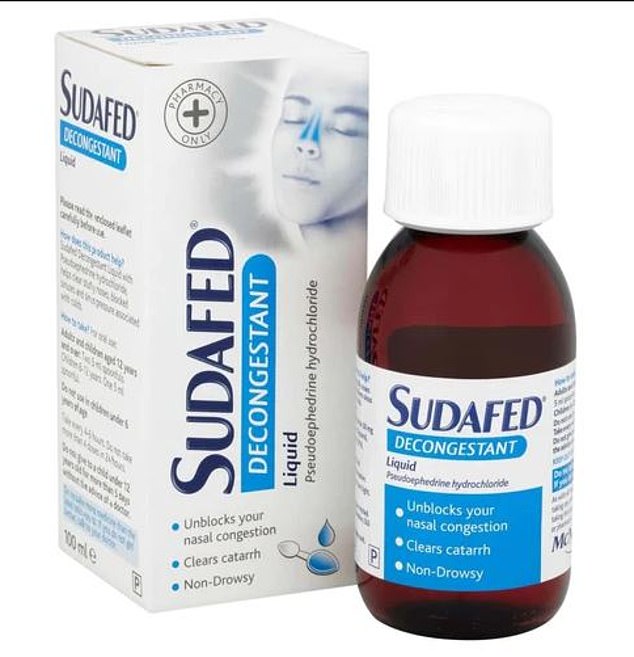Millions of Britons suffering from chronic sinusitis could soon be offered surgery to combat the condition, experts suggested today.
Chronic rhinosinusitis (CRS) affects one in 10 adults and causes inflammation of the nose and paranasal sinuses that can make breathing difficult and cause face pain or tenderness.
While mistaken for a bad cold, it can last for months or even years and sufferers often have a reduced quality of life, need more medical attention and are more likely to be off sick.
Currently, nasal steroids and saline rinses are prescribed to patients to help alleviate symptoms.
But now, British researchers have found these treatments are broadly ineffective in comparison to sinus surgery.
In a major clinical trial, involving more than 500 patients, doctors and scientists at University College London, the University of East Anglia and Guy’s and Thomas’ NHS Foundation Trust, also discovered surgery was still effective at reducing symptoms of the condition six months on.
Experts today claimed the findings could be ‘a real-game changer for sufferers worldwide’.
Professor Carl Philpott, a rhinology specialist at the University of East Anglia and study lead author, said: ‘What we found is that surgery was effective at reducing symptoms six months on, while taking the course of antibiotics seemed to make little difference.

Chronic rhinosinusitis (CRS) affects one in 10 adults and causes inflammation of the nose and paranasal sinuses that can make breathing difficult and cause face pain or tenderness
‘Until now, there was no evidence in the form of a trial that showed sinus surgery works better than medical treatment and access to sinus surgery has been restricted in some parts of the UK in recent years.
‘This could be a real-game changer for sufferers worldwide..’
He added: ‘We hope our findings will help reduce the length of time for patients to get treatment. Streamlining clinical pathways will help reduce unnecessary visits and consultations, and save on healthcare resources.’
In the study, all participants received nasal steroids and saline rinses as standard care, alongside their randomly allocated treatment option of either sinus surgery, antibiotics or placebo tablets.
They were followed up after three and six months, where researchers examined their nose and sinuses, took airflow readings and conducted smell tests.
Writing in the prestigious journal The Lancet, researchers said of those who underwent surgery, 87 per cent said their quality of life had improved six months on.
The researchers are now looking to see how long the benefits last, over an extended follow up period.
Professor Claire Hopkins, a rhinology specialist at Guy’s Hospital, London and one of the trial’s chief investigators, said: ‘Although sinus surgery is commonly performed within the NHS, uncertainty regarding its effectiveness has led to restricted access for many patients in the NHS.

Sudafed sprays for blocked noses cost around £4. But experts have warned of the dangers when using them for longer than advised
The results of the trial highlight the significant improvements in quality of life that many patients experience after surgery.
‘It should give them and their referring doctors more confidence in seeking treatment for chronic rhinosinusitis.
‘We hope that this work will enhance the care for adult patients with chronic rhinosinusitis within the NHS, and beyond.’
It comes as medics warned earlier this year that an alarming number of people are becoming hooked on nasal decongestant sprays.
The sprays, available for less than £4 at high-street chemists and supermarkets are a go-to remedy for relieving a blocked nose.
But using them for longer than a week at a time can irritate sensitive blood vessels in the nose, causing swelling and exacerbating sinusitis symptoms.
This results in a vicious cycle that leaves patients even more reliant on the medication to help them breathe.
People affected are now calling for the decongestant spray such as Sudafed to be made available by prescription only, so GPs can limit the supply.
As nasal decongestant sprays are not a prescription medication, the number of people taking them regularly—and therefore at risk of rebound congestion—is unknown.












